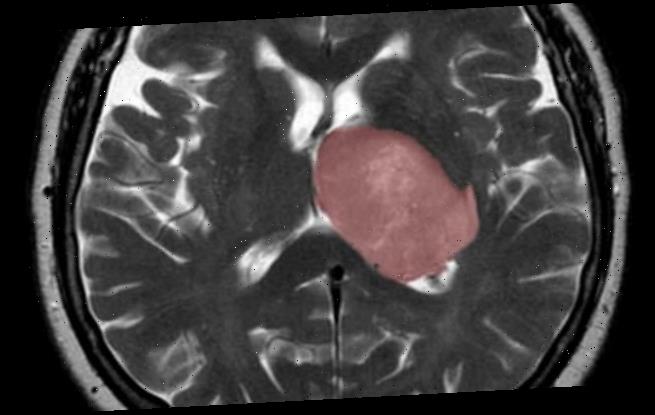Giving pregnant women extra oxygen during labour and delivery is ‘often unnecessary’, study suggests
- US researchers compared 16 studies assessing benefit of oxygen in childbirth
- Found there is no clear or significant benefit to providing extra oxygen
- Researchers say being more judicious with oxygen will reduce childbirth costs
Giving oxygen to mothers during childbirth is an unnecessary intervention in the majority of cases, a new study claims.
The practice is a decades-long staple of labour to prevent the baby suffering a lack of oxygen, which can lead to significant health issues including brain damage.
If an abnormal foetal heartbeat is detected the mother is given oxygen, with the theory being it will increase the amount of oxygen the baby receives.
But this remains unproven and the true benefits of oxygen during childbirth have divided scientific opinion.
A new piece of research reviewing 16 separate studies has found no benefit in providing supplemental oxygen to mothers during labour and delivery.
Scroll down for video
Giving oxygen to mothers during childbirth is an unnecessary intervention in the majority of cases, a new study claims. The practice is a decades-long staple of labour to prevent the baby suffering a lack of oxygen
The US researchers focused on the potential benefits of the practice to see if the cost of childbirth in the country can be minimised.
In the UK the NHS provides oxygen, and all other facets of the process, free of charge. But in the US, even women who have insurance can find themselves slapped with a hefty bill for unexpected expenses, including the supply of oxygen.
Study first author Dr Nandini Raghuraman at Washington University School of Medicine in St Louis, said: ‘It is such a common practice because the thought is that by giving mum oxygen, we are increasing oxygen transfer to the baby.
‘However, the results of this study suggest that oxygen is not helpful in these cases and that the practice could be safely discontinued for many women.’
Supplementation with oxygen is so common because an unusual heartbeat is tied to foetal wellbeing and oxygen deprivation.
Therefore the American College of Obstetricians and Gynaecologists recommends giving oxygen to a mother giving birth to a baby with an abnormal heartbeat.
‘But about 80 per cent of the time, women giving birth fall into an intermediate category, in which cases are not completely benign but also not high-risk,’ Dr Raghuraman says.
‘And in cases such as these, supplementing oxygen offers no additional benefits.’
If an abnormal foetal heartbeat is detected the mother is given oxygen, with the theory being it will increase the amount of oxygen the baby receives. But this remains unproven and the true benefits of oxygen during childbirth have divided scientific opinion
1% of women have a gene that allows them to give birth without any anaesthetic
Around one in 100 women carry a gene that raises their pain threshold and allows them to give birth without any anaesthetic, a study has revealed.
The rare gene variant, called KCNG4, is believed to inhibit how pain is processed by the nervous system and acts as a ‘natural epidural’.
Researchers from the University of Cambridge found that it was present in women who had carried their first-born child to full term and did not request any pain relief during an uncomplicated vaginal delivery.
It remains unknown whether some men also have the pain-resistant genetic variant, as the study only looked at women during the severe stress from childbirth.
Researchers examined studies dating back as far as 1982 including thousands of women and children and compared the overall outcome.
Dr Raghuraman said: ‘Overall, the studies produced mixed results, with some indicating a benefit and others indicating no benefit.
‘That was the reason for doing a meta-analysis. By pooling the numbers of patients across the studies we could get a more definitive answer than looking at individual studies.’
The researchers evaluated the acidity of the babies’ blood from samples taken shortly after birth and used this as a gauge for oxygen deprivation. Any reading lower than 7.1 is considered abnormal and an indicator for a lack of oxygen during birth.
Dr Raghuraman said: ‘Comparing the health of the babies whose mothers received oxygen and those whose mothers didn’t, we found that the differences were essentially zero.’
She said forgoing oxygen supplementation would help reduce an unnecessary intervention and likely reduce health-care costs.
Dr Raghuraman said: ‘It’s been shown that mums, despite having health insurance, often incur steep out-of-pocket costs related to childbirth.
‘Although oxygen is generally an inexpensive intervention compared with other labour and delivery services, minimising any unnecessary procedure is important.’
The full findings are published in JAMA Pediatrics.
Source: Read Full Article




